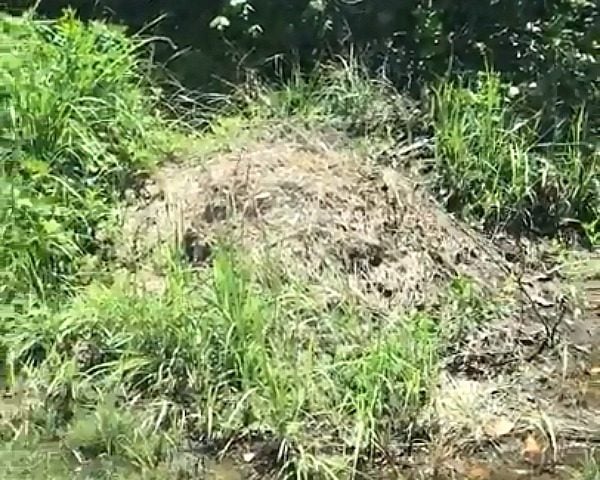It looks innocuous. Just a mound of mud, reeds, vegetation washed up on the water’s edge. But when Queensland mother Liza Giudice discovered it on her property she realised the danger her family was in.
The mound is the nest of a saltwater crocodile, and the eggs are due to hatch in May.
Guidice discovered the nest on her Mossman cane farm in January, and reported it to the Department of Environment and Heritage Protection in the hopes of having it removed. Yet, three months later it remains.
“The response has been ‘don’t touch it, keep away and we will put up a [warning] sign’,” Giudice told The Daily Mail. “They basically said they can’t do anything unless it’s being aggressive.”
But for the mother of two, a sign simply doesn’t cut it.
“This is an apex predator we’re talking about,” she said. “They’re aggressive when they are nesting and prowl around looking for food – whether that’s dogs or kids or whatever they can find.”


Top Comments
I'm disappointed at the attitude of these people re: the crocodile - nesting on land they own BUT DON'T LIVE ON.
So, nothing but people have the right to make a home for their offspring except in certain places (which are probably illegal hunting grounds - which is probably the reason this croc made a nest in an area which is not usually a human traffic way)?
& people MIGHT get eaten by the croc/it's offspring. Well there are lots of mights in the world.. most of which never materialise.
Humans have invaded animal homes everywhere in the world and continue to do so, ruining the area with pollution/devastation.
I'd personally prefer a world full of crocodiles than the 1 we have - overrun with the products & waste of humanity.
Here here!! Could not agree more!
Tough one. I remember reading that some croc parks and farms will harvest crocodile eggs if contacted, although I'm unsure what the laws are pertaining to that practice today.